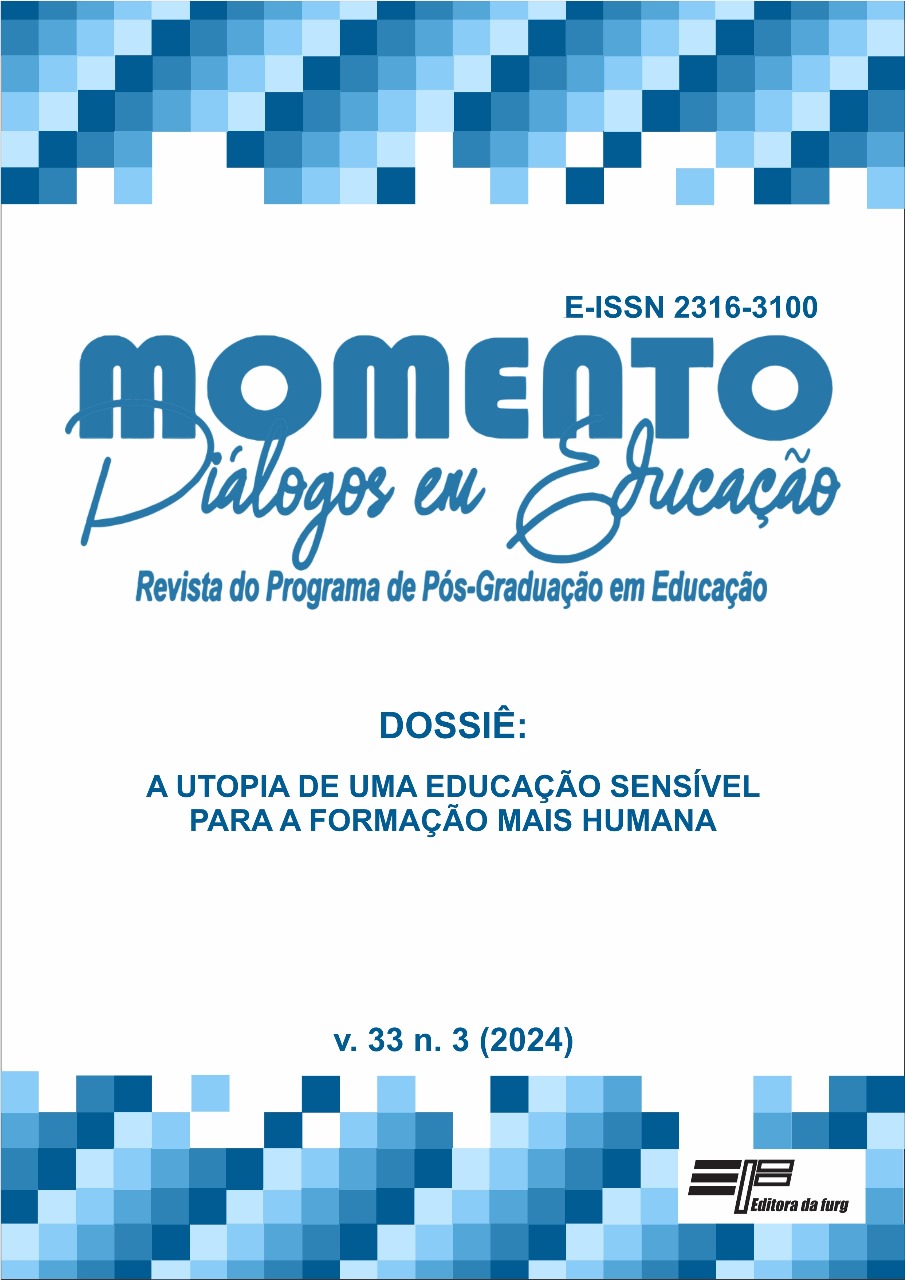HOLISTIC EDUCATION AND WHOLE PERSON IN THE SCHOOL FORMATION PROCESS
a perspective from educators participating in the Fulbright Distinguished Awards in Teaching - DAI Program
DOI:
https://doi.org/10.14295/momento.v33i3.16353Keywords:
Integral education, international education, holistic education, complexityAbstract
This article addresses the growing appreciation of competencies beyond academics as an integral part of the educational process and the pursuit of a more holistic and comprehensive approach in formal education, extending beyond the mere transmission of cognitive knowledge. The research originated from the Fulbright Distinguished Awards in Teaching (Fulbright DAI) program, during which educators from different countries shared experiences and perspectives on this theme. The overall objective is to assess the level of practice and familiarity of these educators with holistic education using a semi-structured questionnaire. The methodology adopted is qualitative, with an exploratory bibliographic study to provide theoretical support for the research and the administration of the questionnaire to 13 educators representing 10 countries from the Fulbright DAI program. The article aims to stimulate reflections on the comprehensiveness in the educational process, presenting international perspectives that emphasize the importance of the school in the comprehensiveDownloads
References
LAHON, S. Role of Holistic Education on Students' Optimum Possible Development. Social Science Journal of Gurgaon College, Volume IV, 2012. Disponível em: https://gargaoncollege.ac.in/pdf/publications/1/pub_more/52.pdf. Acesso em: 19 out 2022.
MAHMOUDI, S., JAFARI, E., NASRABADI, H. A., & LIAGHATDAR, M. J. Holistic education: An approach for the 21st century. International Education Studies, 5(2), 178-186, 2012.
MILLER, J. Holistic learning and spirituality in education: Breaking new ground. State University of New York Press, 2005.
MILLER, J. P. Caring for new life: Essays on holistic education. Brandon, VT: Foundation for Educational Renewal, 2000.
MILLER, J. P. Chapter 13 of Holistic Education in South America, Bhutan, and the Asia Pacific Network in holistic education, 2013.
Disponível em: https://her.journals.publicknowledgeproject.org/index.php/her/article/view/1210/1108 Acesso em: 14 nov 2022.
MILLER, J. P. The Holistic Curriculum. 3rd ed. University of Toronto Press, 2019.
Miseliunaite, B., Kliziene, I., & Cibulskas, G. Can Holistic Education Solve the World’s Problems: A Systematic Literature Review. Sustainability, 14, 9737, 2022. Disponível em: https://doi.org/10.3390/su14159737. Acesso em: 20 nov 2022.
MORIN, E. Os sete saberes necessários à educação do futuro. 2nd ed. São Paulo : Cortez; Brasília, DF : UNESCO, 2000.
MORIN, E. Educar na era planetária: o pensamento complexo como método de aprendizagem pelo erro e incerteza humana. São Paulo/Brasília: Cortez/Unesco, 2003.
MORIN, E. Educação planetária: conferência na Universidade São Marcos, São Paulo, Brasil, 2005.
MORIN, E. Introdução ao pensamento complexo. 3rd ed. Porto Alegre: Sulina, 2005.
MORIN, E. Ensinar a Viver: Manifesto para mudar a educação. 1st ed. Porto Alegre: Ed. Sulina, 2015.
MORIN, E; CIURANA, E.R.; MOTTA, R.D. Educar na era planetária: o pensamento complexo como método de aprendizagem pelo erro e incerteza humana. São Paulo/Brasília: Cortez/Unesco, 2003.
MORIN, E; LE MOIGE, J. A Inteligência da complexidade. São Paulo: Petrópolis, 2000.
WALLON, H. As origens do pensamento na criança. São Paulo: Manole, 1989.
WALLON, H. A evolução psicológica da criança. Lisboa: Edições 70. 1995.
WALLON, H. As Origens do Caráter da Criança. São Paulo: Nova Alexandria, 1995.
WITMER, J. M. Pathways to personal growth. Developing a sense of worth and competence in a holistic education approach. ERIC Clearing ouse.
Downloads
Published
How to Cite
Issue
Section
License
Copyright (c) 2024 Momento - Diálogos em Educação

This work is licensed under a Creative Commons Attribution 4.0 International License.
À Revista Momento − Diálogos em Educação, ficam reservados os direitos autorais, de todos os artigos nela publicados.


